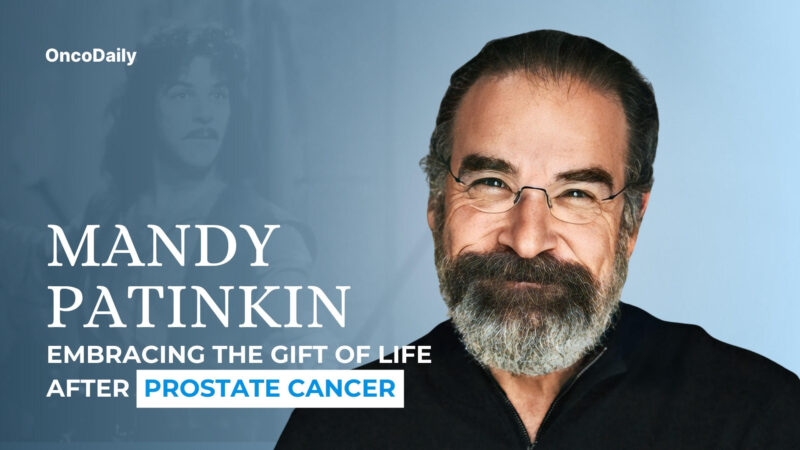James Michael Tyler, who bravely battled stage 4 prostate cancer, was an American actor best known for his iconic role as Gunther on the hit sitcom Friends. Portraying the coffee shop worker at Central Perk, Gunther was famous for his bleach-blond hair and his unrequited love for Rachel Green, played by Jennifer Aniston. Tyler appeared in nearly 150 episodes of the series between 1994 and 2004, becoming one of the show’s most beloved recurring characters.
In 2018, Tyler was diagnosed with advanced prostate cancer, which he publicly revealed in 2021 to raise awareness about the disease. His openness about his diagnosis had a significant impact, highlighting the importance of early detection and regular health screenings. Tyler passed away in October 2021 at age 59, with fans and Friends co-stars paying tribute to his memorable performance and courage in battling cancer.
Early Diagnosis and Initial Treatment
James Michael Tyler was diagnosed with prostate cancer in 2018 during a routine physical exam that included a PSA (prostate-specific antigen) blood test. The PSA test measures the level of a protein produced by prostate cells in the blood. Elevated PSA levels can be an early indicator of prostate cancer, although other benign conditions can also raise PSA.
Tyler’s cancer was detected early thanks to this screening, underscoring the importance of PSA testing for men, especially those over 50 or at higher risk. Early diagnosis significantly improves survival rates by allowing timely treatment before the cancer spreads.
Following his diagnosis, Tyler began hormone therapy, which is commonly used to slow the growth of prostate cancer by reducing testosterone levels. He initially responded well to the hormone therapy, which helped to control the progression of his disease for about a year.
Progression and Challenges
While James Michael Tyler initially responded well to hormone therapy following his 2018 prostate cancer diagnosis, his condition notably worsened during the COVID-19 pandemic. Due to missed medical testing amid the pandemic, the cancer “mutated” and progressed aggressively.
The disease spread extensively, metastasizing to his bones and spine. This metastasis caused paraplegia, leaving Tyler with paralysis in the lower half of his body and severe mobility challenges.
In response to the progression, Tyler transitioned to aggressive chemotherapy for more intensive cancer control. Despite the hard battle and significant health setbacks, he remained outspoken about the importance of regular cancer screenings and early detection.
Tyler’s journey highlights the unpredictable nature of advanced prostate cancer and the critical need for consistent medical monitoring, especially during disruptive events like a global pandemic.

Public Awareness and Advocacy
James Michael Tyler chose to speak openly about his prostate cancer diagnosis to encourage men everywhere to prioritize their health through early detection. In interviews, Tyler emphasized the importance of PSA (prostate-specific antigen) testing during routine physical exams, sharing how the test helped detect his cancer early before it spread extensively.
He highlighted the critical role of regular medical checkups and screenings, urging men not to delay doctor visits even during challenging times like the COVID-19 pandemic. Tyler candidly conveyed that early detection dramatically improves treatment options and survival rates.
Tyler’s advocacy aimed to break the stigma surrounding prostate cancer and encourage men to engage proactively with their healthcare providers, reinforcing that a simple blood test could potentially save lives. His message was clear: prioritizing prostate health through routine testing is essential, and no one should put off medical care out of fear or embarrassment.
Through his courageous public disclosure, Tyler hoped to inspire others to undergo PSA testing timely and to seek help early—ultimately contributing to better outcomes and awareness nationwide.
Personal Impact and Legacy
James Michael Tyler’s prostate cancer profoundly affected both his personal and professional life. As the disease progressed, he faced significant health challenges, including mobility limitations due to cancer spreading to his bones and spine.
In May 2021, Tyler made a brief virtual appearance via Zoom on the much-anticipated Friends reunion special. He initially planned to attend in person but chose the virtual option to avoid overshadowing the celebratory event with his illness. He stated he did not want to bring a “downer” to the reunion by highlighting his cancer battle publicly at that time.
Tyler passed away peacefully in October 2021 at the age of 59. His death prompted heartfelt tributes from Friends co-stars, including Jennifer Aniston, David Schwimmer, Courteney Cox, and Matthew Perry, who praised his talent, spirit, and kindness. Fans around the world also mourned the loss of the beloved actor whose portrayal of Gunther left an indelible mark on the iconic series.
Despite his illness, Tyler remained dedicated to raising cancer awareness and encouraging early detection to save lives, leaving behind a legacy of courage and advocacy.
Friends TV Series: The Beloved Sitcom and Its Iconic Characters
Friends, the hit American TV sitcom that aired from 1994 to 2004, follows the personal and professional lives of six close-knit friends living in New York City. The series became a cultural phenomenon, blending humor, romance, and heartwarming moments to captivate audiences worldwide.
The main cast includes Jennifer Aniston as Rachel Green, Courteney Cox as Monica Geller, Lisa Kudrow as Phoebe Buffay, Matt LeBlanc as Joey Tribbiani, Matthew Perry as Chandler Bing, and David Schwimmer as Ross Geller. Each character brought unique charm and complexity, inspiring lasting fan devotion and critical acclaim.
The show’s success stems from its relatable storylines, memorable catchphrases, and the undeniable chemistry among the ensemble cast. Friends remains influential in television history and continues to attract new generations of viewers through streaming platforms.
What Causes Prostate Cancer?
Prostate cancer risk is influenced by genetic factors, age, hormonal imbalances, lifestyle choices, and environmental factors. Key risk elements include a family history of cancer, older age, higher testosterone levels, poor diet, and obesity. Geographic variations also suggest environmental influences. Prevention strategies involve maintaining a healthy diet, regular exercise, and weight management. Genetic testing and individualized screening are recommended for those with higher risk profiles.
Genetic and Hormonal Factors
Genetics and hormonal factors play significant roles in influencing prostate cancer risk. Here’s a detailed look at these influences:
- Family History: Men with a family history of prostate cancer are at higher risk. Studies show that having a first-degree relative (father, brother) with prostate cancer increases the risk by about 2-3 times (: American Cancer Society, Prostate Cancer Risk Factors).
- Inherited Mutations: Genetic mutations, such as those in the BRCA2 gene, are linked to a higher risk of prostate cancer. Men with BRCA2 mutations are about 2-3 times more likely to develop prostate cancer compared to those without these mutations ( National Cancer Institute, Genetics of Prostate Cancer).
- Lynch Syndrome: This genetic disorder, associated with several types of cancer, also increases the risk of prostate cancer. Men with Lynch Syndrome have a lifetime risk of about 7-12% ( Genetics Home Reference, Lynch Syndrome).
- High Testosterone: Elevated levels of testosterone are linked to a higher risk of prostate cancer. Research suggests that high testosterone can promote the growth of prostate cancer cells. However, the relationship between testosterone levels and prostate cancer risk remains complex and under ongoing study ( Mayo Clinic, Prostate Cancer Risk Factors)
- Androgen Receptor Gene: Variations in the androgen receptor gene, which regulates the effects of testosterone, are associated with increased prostate cancer risk. Studies have shown that specific gene variants can modify the risk ( Journal of Clinical Oncology, Androgen Receptor Gene Variants and Prostate Cancer Risk).
How Can Prostate Cancer Be Prevented?
Preventive measures for cancer focus on regular screenings, lifestyle adjustments, and dietary changes. Routine medical tests help detect cancers early, while quitting smoking and staying physically active lower risk factors. A diet rich in plant-based foods, along with limiting alcohol and red meat, is advised by cancer research organizations to reduce cancer incidence.
Regular Screenings and Early Detection
Regular PSA (Prostate-Specific Antigen) tests and screenings are essential for early detection of prostate cancer, particularly for men over 50 or those with a family history of the disease. PSA tests measure the level of a specific protein in the blood, and elevated levels can indicate prostate issues, including cancer.
Recognizing early symptoms, such as difficulty urinating, frequent urination (especially at night), or blood in the urine, is crucial. Early-stage prostate cancer often shows minimal symptoms, making regular screenings even more vital. Prompt medical consultation at the first sign of symptoms can lead to early diagnosis, improving treatment outcomes and reducing the risk of complications.
You Can Also Read Mandy Patinkin and Prostate Cancer: How He Went Against, How He Survived, and More by OncoDaily

You Can Learn More About Latest Research In Prostate Cancer Watching ASCO updates by OncoDaily
Lifestyle Changes
To reduce the risk of prostate cancer, maintain a healthy diet rich in fruits, vegetables, whole grains, and healthy fats while limiting red and processed meats. Foods like tomatoes, broccoli, and omega-3-rich fish are linked to lower risk (American Institute for Cancer Research). Regular exercise, aiming for at least 30 minutes most days, helps regulate hormones, reduce inflammation, and maintain a healthy weight (Journal of Clinical Oncology). Avoiding smoking is crucial, as it is associated with aggressive prostate cancer, and quitting improves overall health (Cancer Research UK). Lastly, limit alcohol consumption to moderation—up to one drink per day for men (American Cancer Society).
Dietary Recommendations
Incorporating antioxidants and fiber-rich foods can help reduce prostate cancer risk. Tomatoes, high in lycopene, may lower risk by up to 35% (National Cancer Institute). Berries are rich in antioxidants that combat cell damage, while fiber-rich whole grains like brown rice and oats are linked to lower cancer risks (American Institute for Cancer Research).
Legumes, such as beans and lentils, provide fiber and phytoestrogens that may inhibit cancer growth. Healthy fats, particularly omega-3 fatty acids from fatty fish, can reduce the risk of prostate cancer death by 26% (Harvard Medical School). Nuts and seeds offer additional healthy fats and fiber, and green tea contains catechins that inhibit cancer growth (UCLA). Cruciferous vegetables like broccoli and cauliflower also have protective effects against cancer (Johns Hopkins Medicine).
Written by Aharon Tsaturyan, MD, Lead of OncoDaily Volunteers, Editor at OncoDaily Intelligence Unit.
FAQ
What type of cancer did James Michael Tyler have?
James Michael Tyler was diagnosed with advanced stage 4 prostate cancer.
When was James Michael Tyler diagnosed with prostate cancer?
He was diagnosed in 2018 during a routine physical exam.
How did James Michael Tyler find out about his cancer?
His cancer was detected through a PSA (prostate-specific antigen) blood test during his routine checkup.
What treatments did James Michael Tyler undergo for prostate cancer?
He initially received hormone therapy, followed by aggressive chemotherapy as the cancer progressed.
How did COVID-19 affect James Michael Tyler’s cancer progression?
The pandemic caused missed medical tests, allowing the cancer to mutate and spread to his bones and spine, causing severe mobility issues.
Did James Michael Tyler appear in the Friends reunion after his diagnosis?
Yes, he made a virtual appearance via Zoom on the Friends reunion special in 2021 but chose to appear virtually to avoid overshadowing the event.
How did James Michael Tyler raise awareness about prostate cancer?
He spoke openly about his diagnosis publicly to encourage men to get PSA testing and emphasized early detection’s importance.
When did James Michael Tyler pass away and what was the cause?
He passed away peacefully in October 2021 at age 59 due to complications from prostate cancer.
Who are the main cast members of Friends?
The main cast includes Jennifer Aniston (Rachel Green), Courteney Cox (Monica Geller), Lisa Kudrow (Phoebe Buffay), Matt LeBlanc (Joey Tribbiani), Matthew Perry (Chandler Bing), and David Schwimmer (Ross Geller).
What is Friends about and why is it so popular?
Friends is a sitcom about six friends living in New York City, focusing on their personal and professional lives. Its relatable humor, strong ensemble cast, and memorable storylines have made it a beloved cultural phenomenon worldwide.


